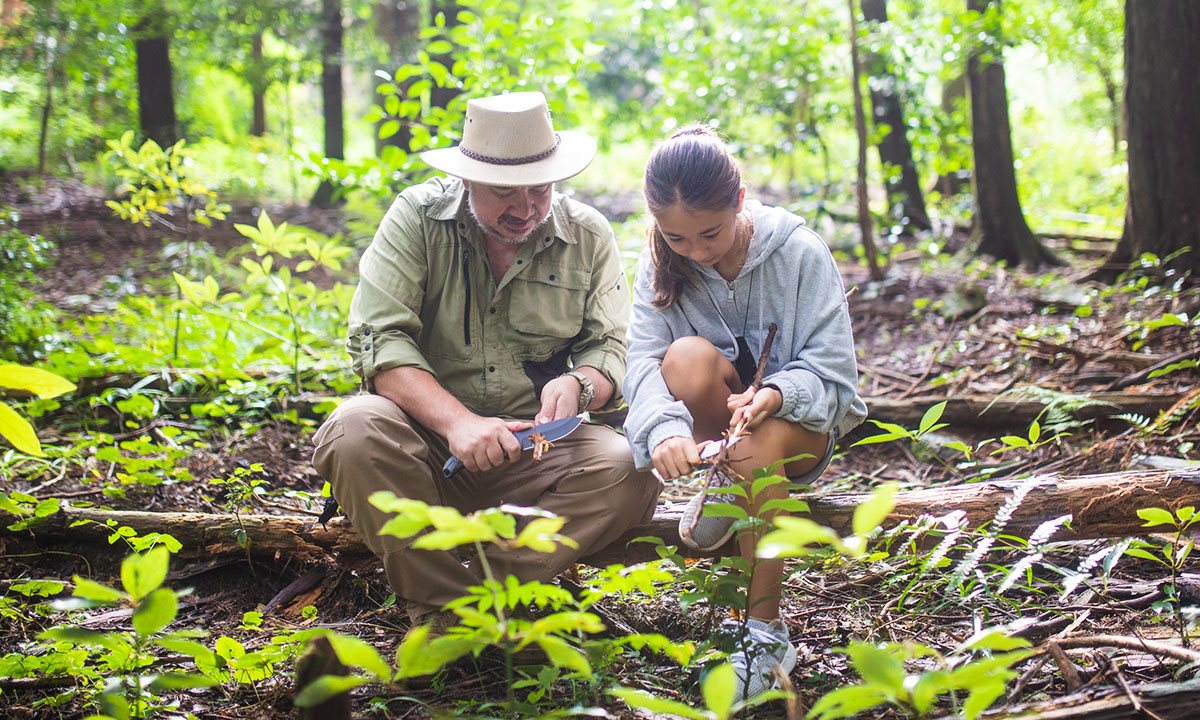

Adventurers are known for embracing the thrill of the unknown, but those who love to test their physical and mental limits are also well aware that planning for both expected and unexpected challenges is critical for survival while on quests. Whether summiting mountains or navigating the most remote desert regions, the following 25 vital skills ensure outdoors enthusiasts will thrive in the wild — and return home safely.
Videos by Outdoors with Bear Grylls
1. Shelter Building
Fans of Survivor and similar shows understand that when thrust into extreme environments with unpredictable conditions, protection from the elements is crucial. It’s essential to master the art of constructing improvised structures using readily available natural materials like mud, moss, or branches. Additionally, learning to effectively utilize man-made items, such as tarps, emergency blankets, and even discarded junk, ensures you’ll have better protection from whatever nature throws your way.
More help here:
- 3 Simple Tarp Shelters
- How to Make it Through the Night if You’re Lost in the Woods
- How to Build a Shelter in a Forest or Jungle
2. Fire Starting
Carrying a fire-starting kit equipped with waterproof matches and tinder is the easiest and most straightforward method for starting a fire, whether for warmth, cooking, or light. It’s equally important, however, to understand how to effectively use tools like flints or fire steel, among others. In areas where kindling may be scarce or conditions are varied, like after a rain shower, knowing how to fuel a fire, along with ways to keep it going, are necessary survival skills.
More help here:
3. Water Procurement
A person can go weeks without food but only around three days without water. Securing safe drinking water and avoiding waterborne illnesses is a basic necessity for all types of adventure, particularly in arid climates. Adventurers should be familiar with how to collect rainwater and purify water obtained from streams, rivers, and other natural sources. Something as simple as a sock filled with sand and rocks could become an improvised filtration device.
More help here:
4. Navigation
Even those with the best sense of direction can become disoriented and lost in unfamiliar terrain. Accurate navigation skills, such as map reading, compass use, and orienting with the sun or distinctive landmarks, are essential for both leisurely hikes and emergency situations where reaching safety is imperative.
More help here:
5. First Aid
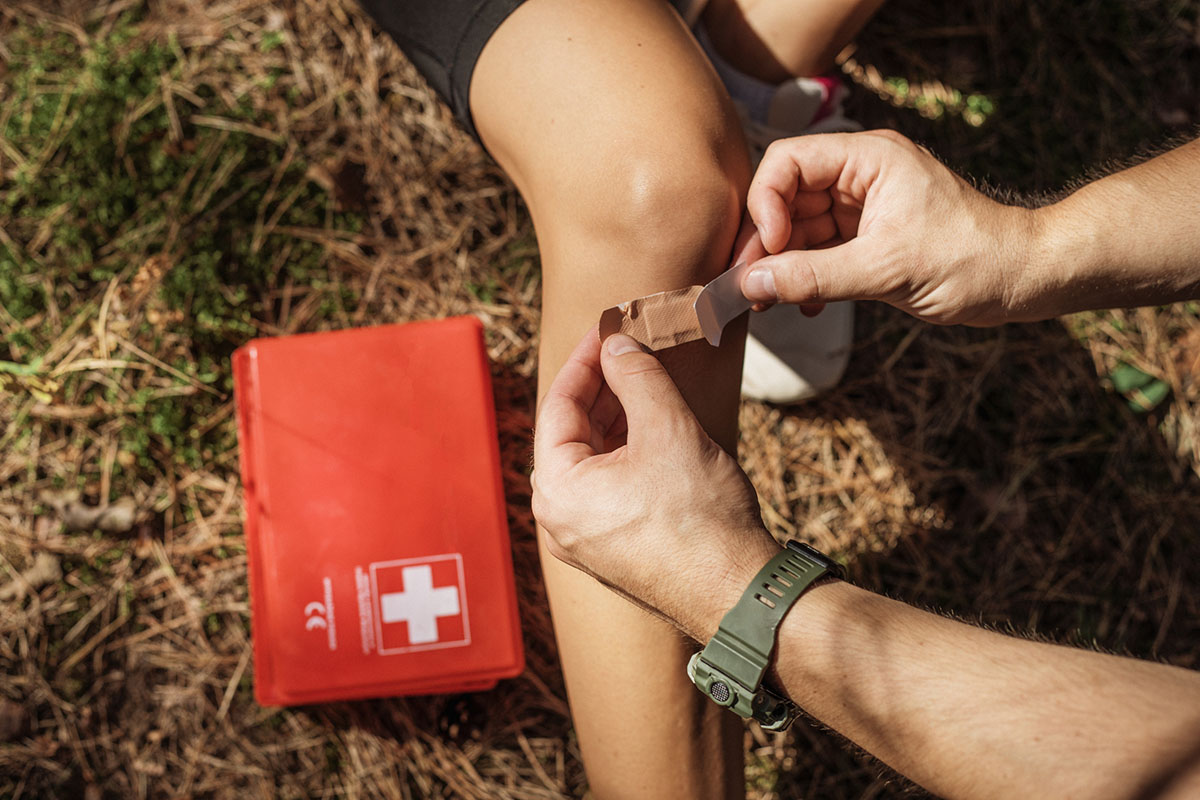
If you don’t have basic first-aid knowledge for facing wilderness emergencies, you might want to think twice before heading out. Skills like dressing wounds, stabilizing fractures, treating food poisoning, or performing CPR are imperative to know in locations where professional medical help is inaccessible.
More help here:
- How to Build First Aid Kit
- First Aid Skills You Need to Know For the Trail
6. Food Foraging
Nature is the best source for sustenance when our store-bought supplies run low. Hunting and fishing are the most common means of getting food, but learning how to identify which plants, mushrooms, and even insects are edible can mean the difference between feeling refreshed and starving. Some plants and mushrooms that are completely safe to devour have look-alikes that are too toxic to touch, so it’s better to already have the skills to distinguish which ones are okay before hunger hits.
More help here:
7. Wildlife Awareness
In every region, wildlife presents its own unique set of dangers. It’s vital to be aware which animals are native to a specific area and might pose a threat so you can take preventative measures to avoid potentially lethal encounters. While rattlesnakes, for example, are found in many parts of the United States, they’re most prevalent in the southwest. Alaska, on the other hand, has the biggest number of grizzly bears. Being well-informed about topics like bear safety, insect sting management, and other aspects of wildlife awareness can make a lifesaving difference.
More help here:
8. Gear Repair
Always being prepared is a skill unto itself, especially when dealing with gear that needs to be fixed. Ingenuity often starts with equipping camp boxes with a couple key products. Gorilla Tape is the most obvious, but gear ties, adhesive repair sealant, and even a small sewing kit can go a long way.
More help here:
9. Knife Skills
Knives are indispensable tools for adventurers, and you should absolutely have one in your outdoors arsenal. Versatile survival knives prove their worth in endless ways, from helping you forage wild edibles to splitting small logs to create quick kindling. The ability to sharpen a knife with a smooth stone is a valuable talent to have for maintaining your tool’s effectiveness.
More help here:
10. Weather Observation
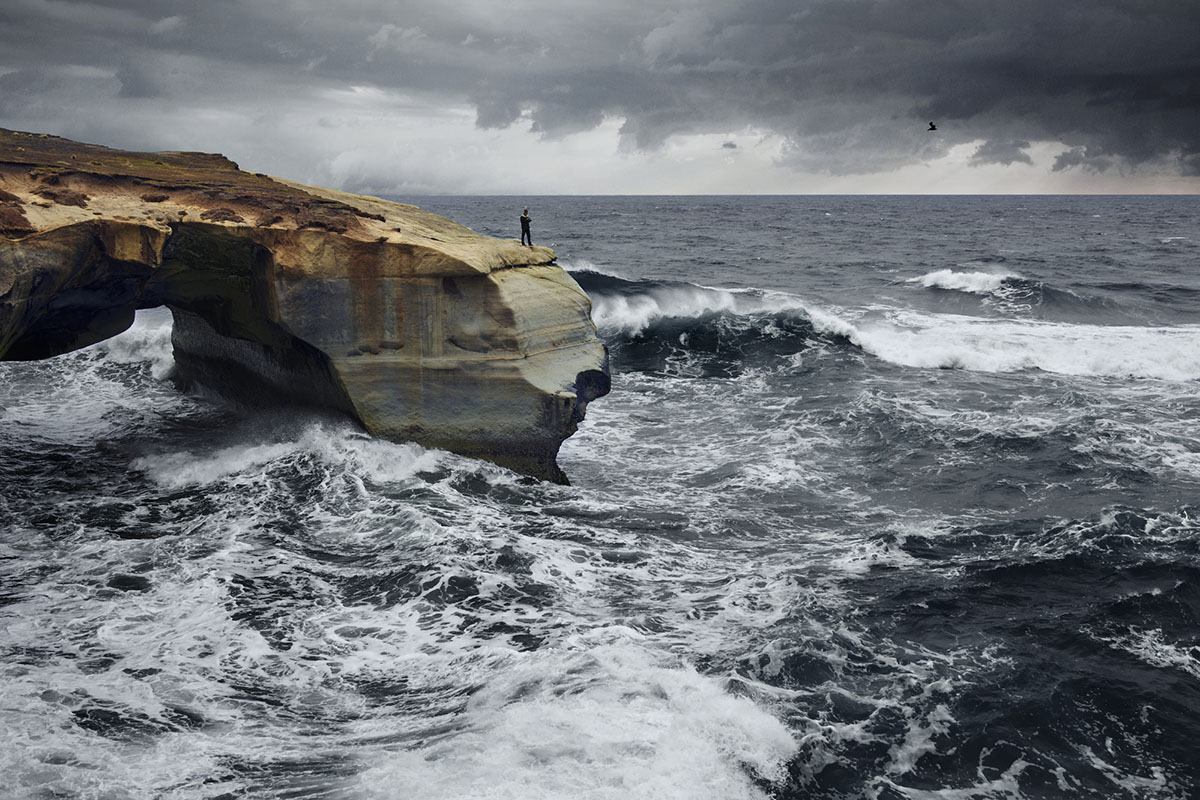
Reading weather signals is an art and can provide a treasure trove of knowledge for outdoors enthusiasts. While it’s not an exact science, even small insights can significantly boost safety and comfort. From knowing cloud types and how they serve as dependable indicators of impending weather shifts to understanding wind behavior as a component of climate variability, weather know-how can help survivalists make the most informed and safest decisions possible while out in the wild.
More help here:
11. Campfire Cooking
Mastering how to cook on the open flames of a campfire is important for adventurers, and it could mean the difference between bad burnt food and delicious meals featuring a smoky, charred flavor. There are also valuable tricks to ensure meals prepared outdoors are cooked to perfection. For instance, carrying foil packet meals, a campfire revelation, allows you to cook directly on hot coals, adding to the convenience of wilderness dining.
More help here:
- 7 Tips Become Campfire Cooking Master
- Hacks to Make Cooking at Camp Easier
12. Survival Mindset
Some people have trouble remaining cool, calm, and collected in stressful situations, but maintaining a positive mindset is a cornerstone skill for adventurers — one that can stave off impending peril. The ability to develop and cultivate techniques for keeping a positive attitude and not giving up under pressure is critical, particularly when the need to make rational decisions arises, as it often unexpectedly does.
More help here:
13. Rope Work
Proficiency in the uses of ropes is paramount for adventurers who don’t want to end up with their hands tied when venturing out. Properly securing a shelter, rappelling down steep cliffs, or rescuing a fellow sportsman all require the use of ropes. They’re also great for river crossings and even building improvised bridges. Rope skills should be considered more than a convenience; they’re often a lifeline.
More help here:
14. Hygiene
The great outdoors is, by definition, meant to be muddy and, well, dirty. However, maintaining good hygiene practices during extended adventures is key for preventing illness and infection. Adventurers need to learn how to maintain basic personal hygiene even when resources are limited (believe it or not, cattails are great for cleaning teeth, and sunlight kills bacteria on filthy clothes laid out in the sun).
More help here:
15. Self-Defense

No one should stand in the way of adventurers going on a safe adventure. Unfortunately, however, human threats exist, particularly in remote areas and/or when exploring solo. Self-defense knowledge is a valuable asset, not to mention a confidence booster, and it can help foster a sense of control and empowerment in an already unpredictable environment.
More help here:
16. Improvised Wilderness Medicine
Improvised wilderness medicine helps adventurers address injuries and illnesses when medical help and supplies aren’t readily at hand. This skill includes providing care with minimal resources. Whether fashioning splints from branches or making bandages from clothing, the skill equips adventurers to respond creatively in emergency situations — even in the most remote regions.
More help here:
17. Surviving Extreme Heat
Relentless sun exposure and scorching temperatures can kill a person, so knowing how to steer clear of overheating and heat stroke, sheltering from the sun, and locating water are just a few critical skills needed when venturing into unforgiving arid landscapes. Something as simple as urinating on a hat or other head covering could keep you cool and buy time.
More help here:
18. Cold Weather Survival
Wintertime skills are different than those needed in milder seasons. Key among them is the ability to stay warm when the conditions turn frigid. This means proficiency in building effective shelters, creating insulating bedding, and starting and maintaining fires. Frostbite can be common in cold weather. While prevention is the best strategy for this serious condition, when it does occur, knowing how to treat it quickly can ease suffering and prevent lasting damage.
More help here:
19. Treating Hypothermia
Hypothermia can be deadly and, therefore, recognizing its early signs — uncontrollable shivering or its sudden cessation, as well as confusion and slow movement — is a lifesaving skill all adventurists should have in their mental handbook. The life-saving steps to combating hypothermia are just as important to learn, especially CPR, which can become necessary in the most severe cases.
More help here:
20. Avalanche Awareness
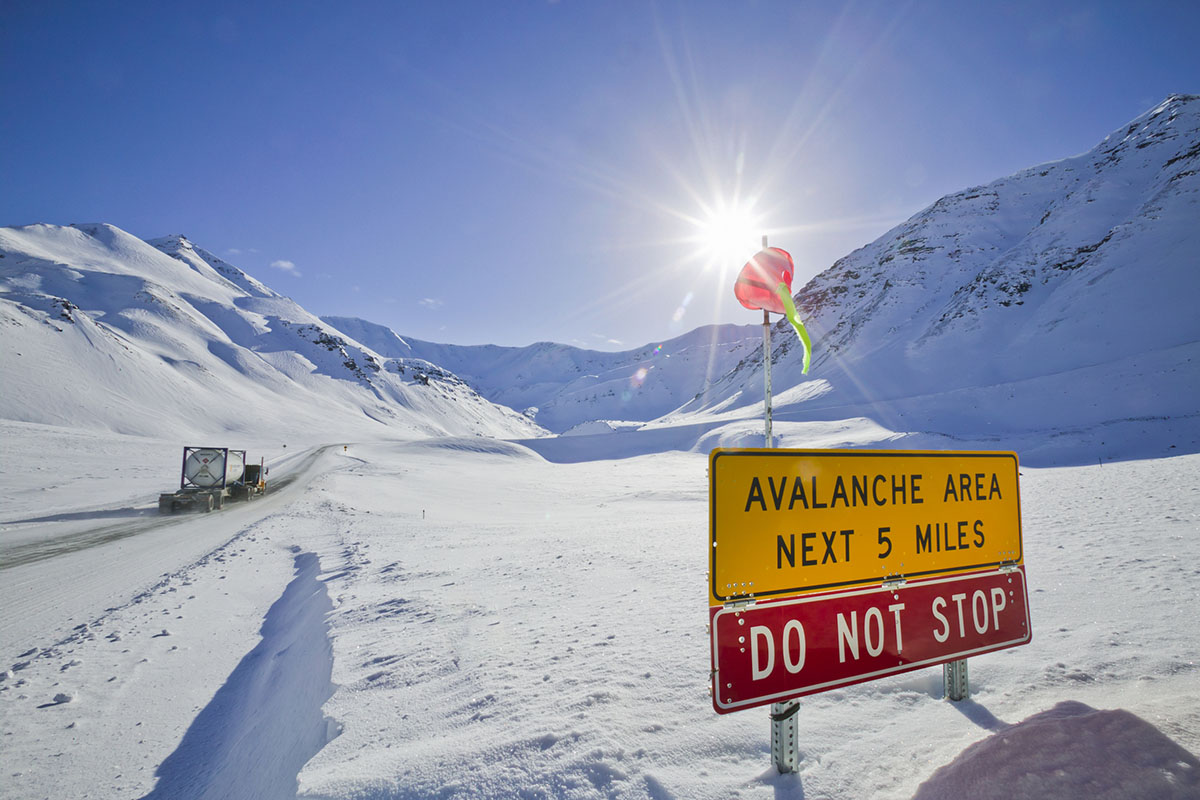
When buried in an avalanche, you have as little as five minutes before your life is in danger. Surviving one of nature’s fastest-moving terrors demands preparedness and know-how — everything from keeping calm and creating an air pocket with your hands if you sense the avalanche is slowing down to carrying an avalanche transceiver and other essential rescue equipment.
More help here:
21. Snake Bite Dos and Don’ts
Knowing what not to do when suffering a snake bite is just as important as understanding what to do. Cutting the puncture marks and trying to suck out the venom isn’t advised. According to experts, a tourniquet may not be the best way to slow the spread of toxins, either. The best thing to do is get help immediately.
More help here:
22. Signaling
For adventurers in hostile or challenging environments, signaling skills are key when lost, injured, or in need of rescue. Visual signals, such as mirrors or smoke, auditory signals, like whistles and Morse code, and signaling devices all alert potential rescuers. The methods can also facilitate continued communication once help arrives.
More help here:
23. River Crossing
Learn proper river-crossing techniques to avoid disaster in swift-moving and unpredictable waters. Rivers that look completely fine can turn wild and dangerous quickly. If you’re going to risk a river crossing, you need to know what you’re doing. That means everything from choosing the right entry and exit points to knowing how to deal with the varying speeds of currents.
More help here:
24. Knot Tying
From basic knots like the bowline and square knots to more advanced ones like mooring and Blake’s hitches, knowing the ropes when it comes to essential knots goes a long way in outdoor situations, especially when bungee cords or similar tools aren’t available. Knots are indispensable for a wide range of tasks, including securing gear and constructing shelters.
More help here:
25. Emergency Signaling Devices Know-How
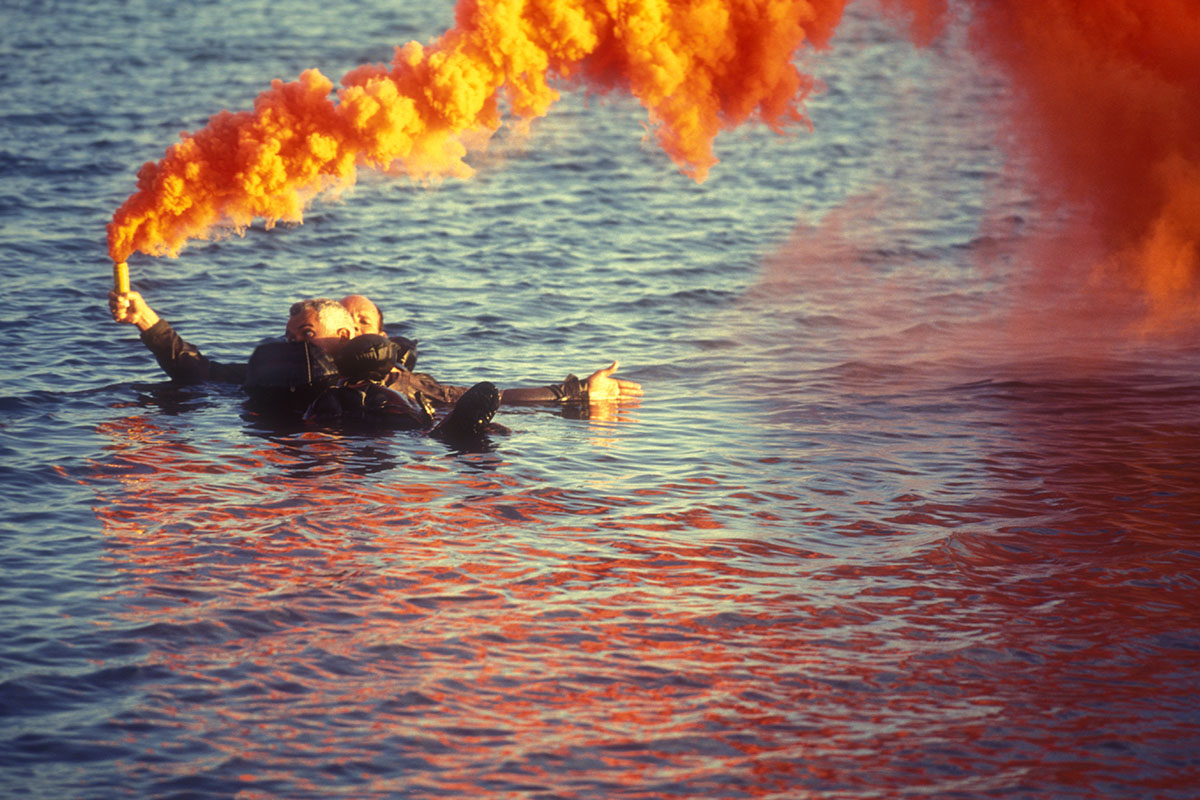
Familiarize yourself with all personal locator beacons, satellite phones, and other navigation, communication, and safety devices before you head out with them. That includes checking their battery life and other limitations to avoid unexpected failures in remote areas. After all, the best technology won’t do much good if it doesn’t work.
More help here:
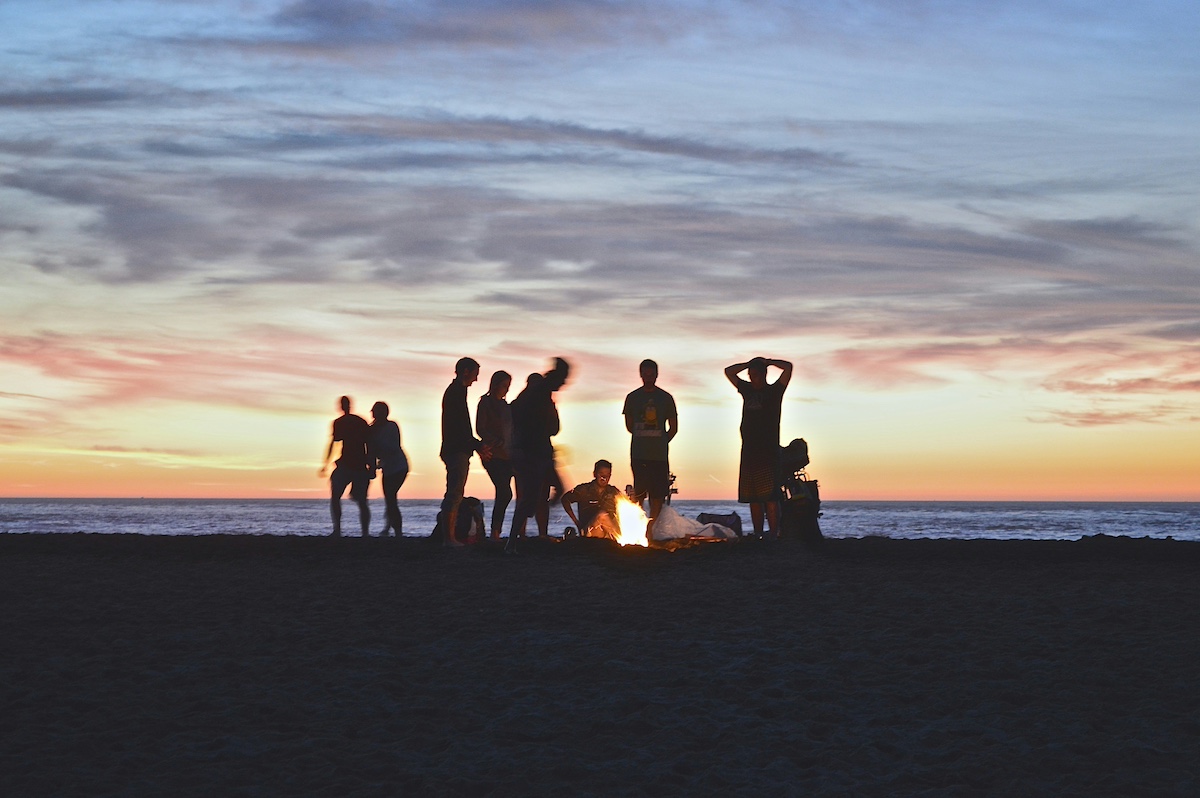
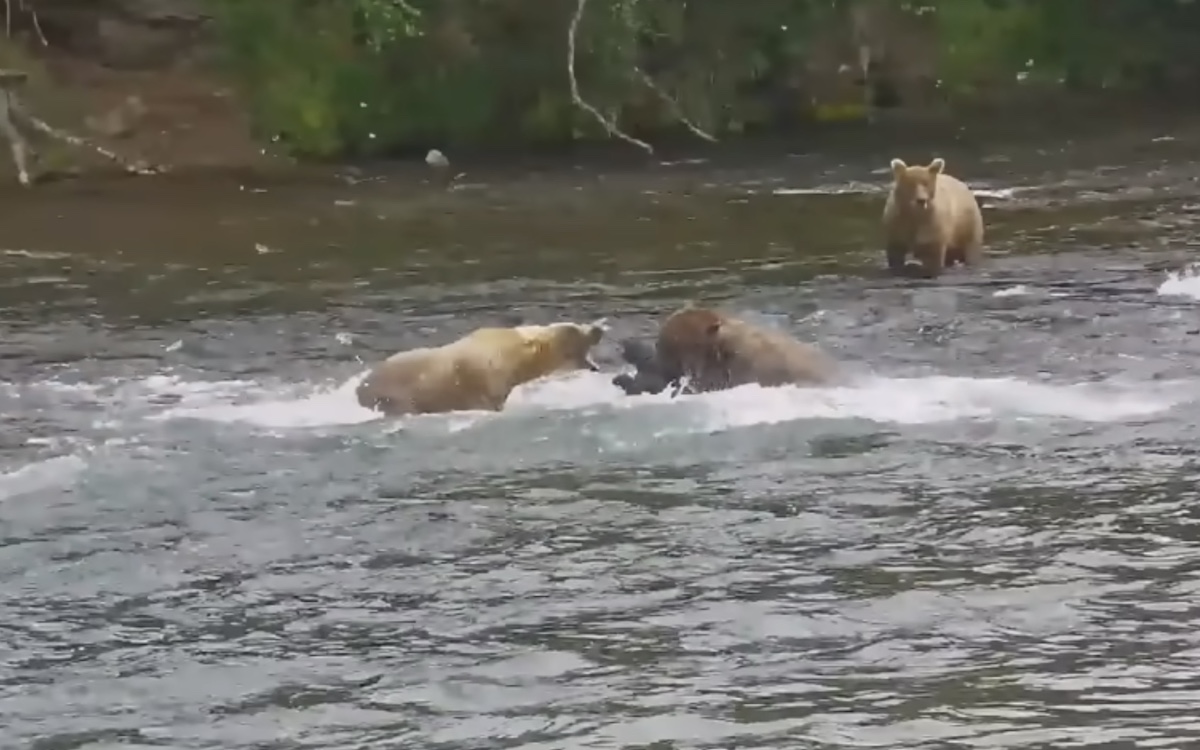
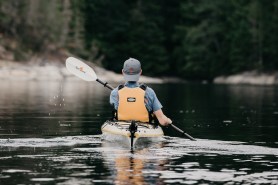
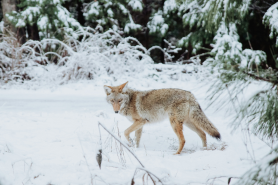

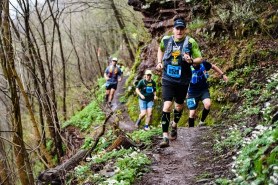

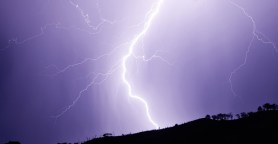
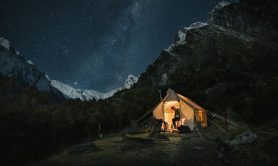

Why is everyone so afraid to advise outback travelers to carry a firearm. It is most useful for both 2 legged and 4 legged predators.???